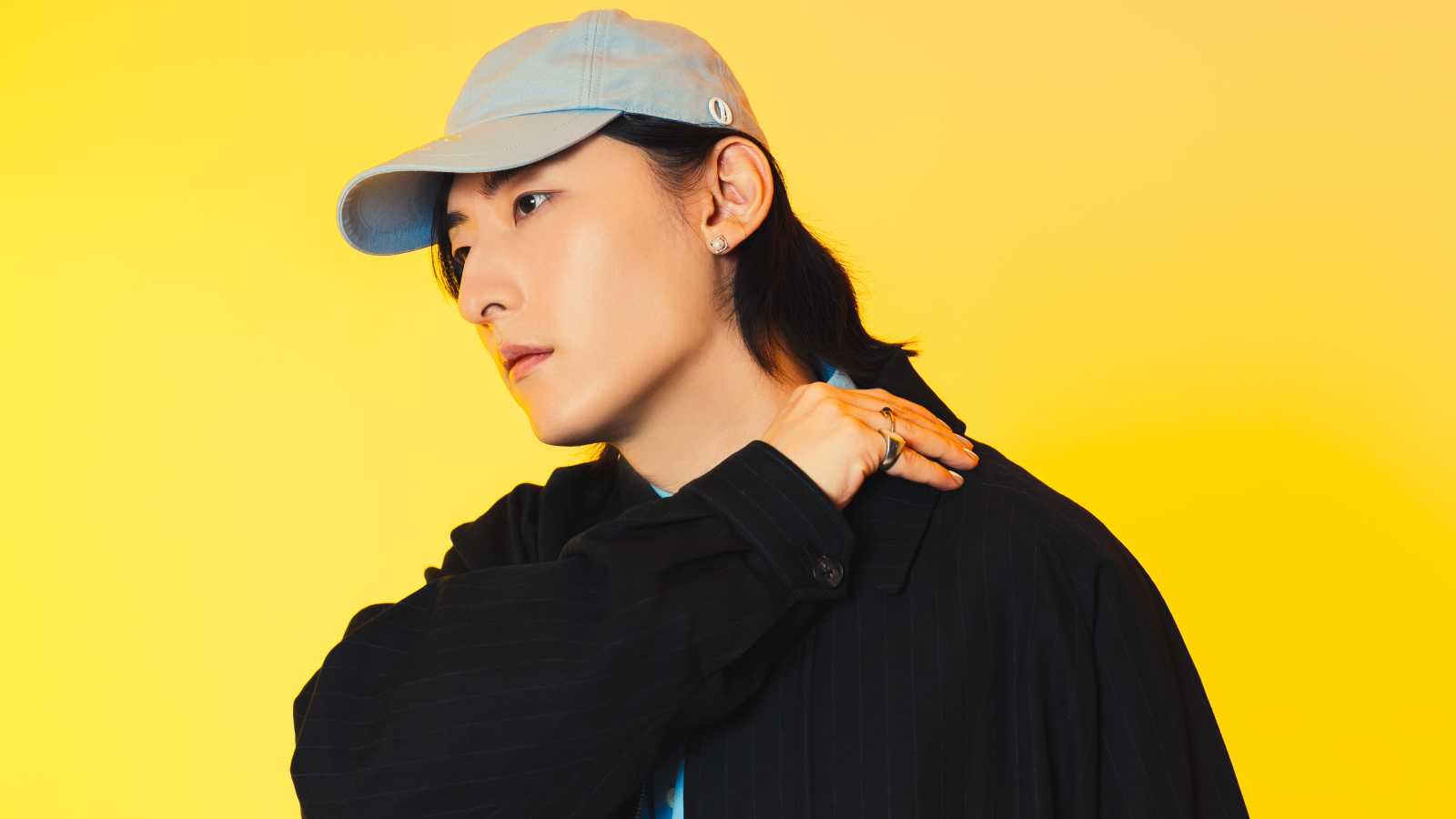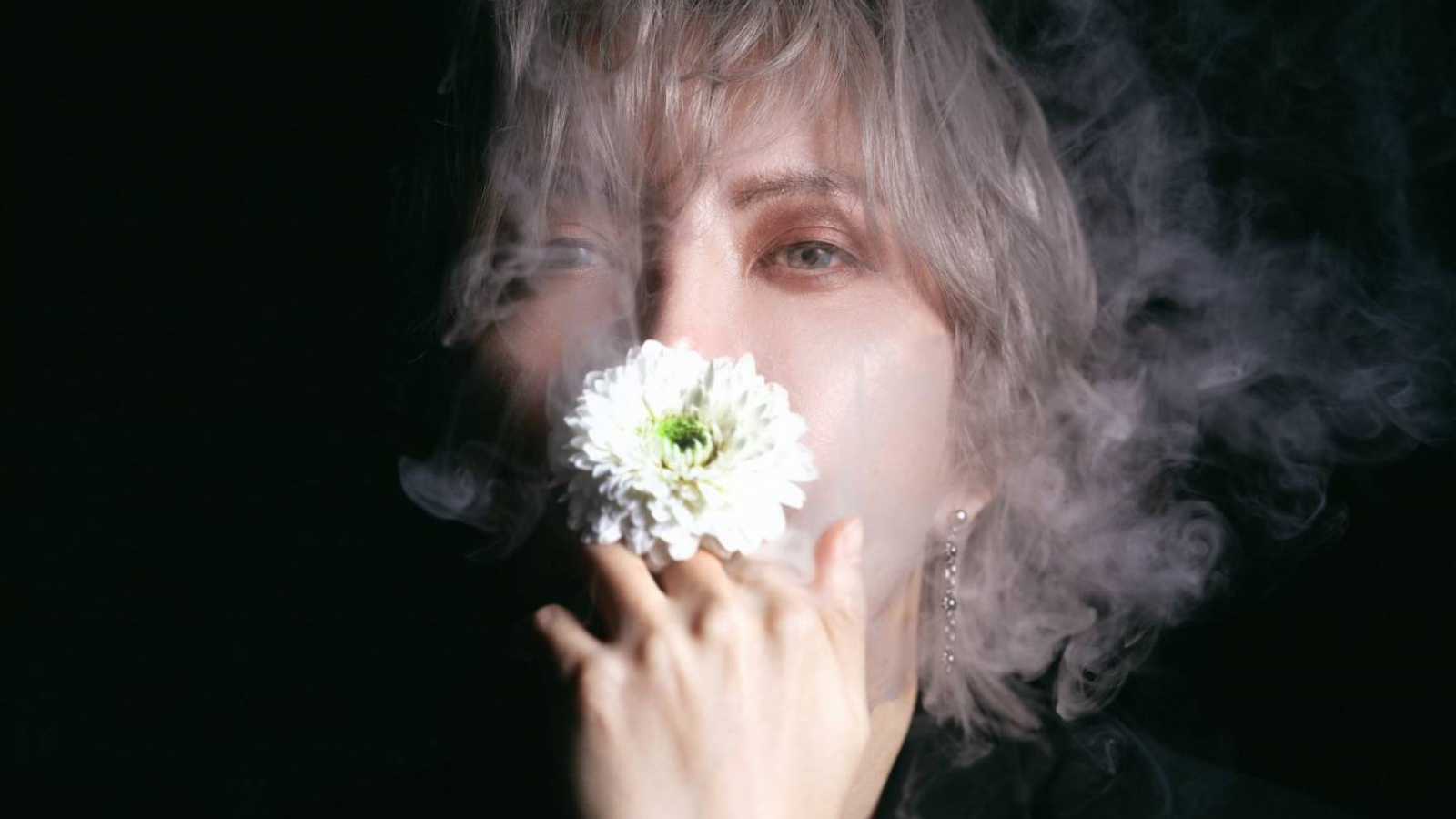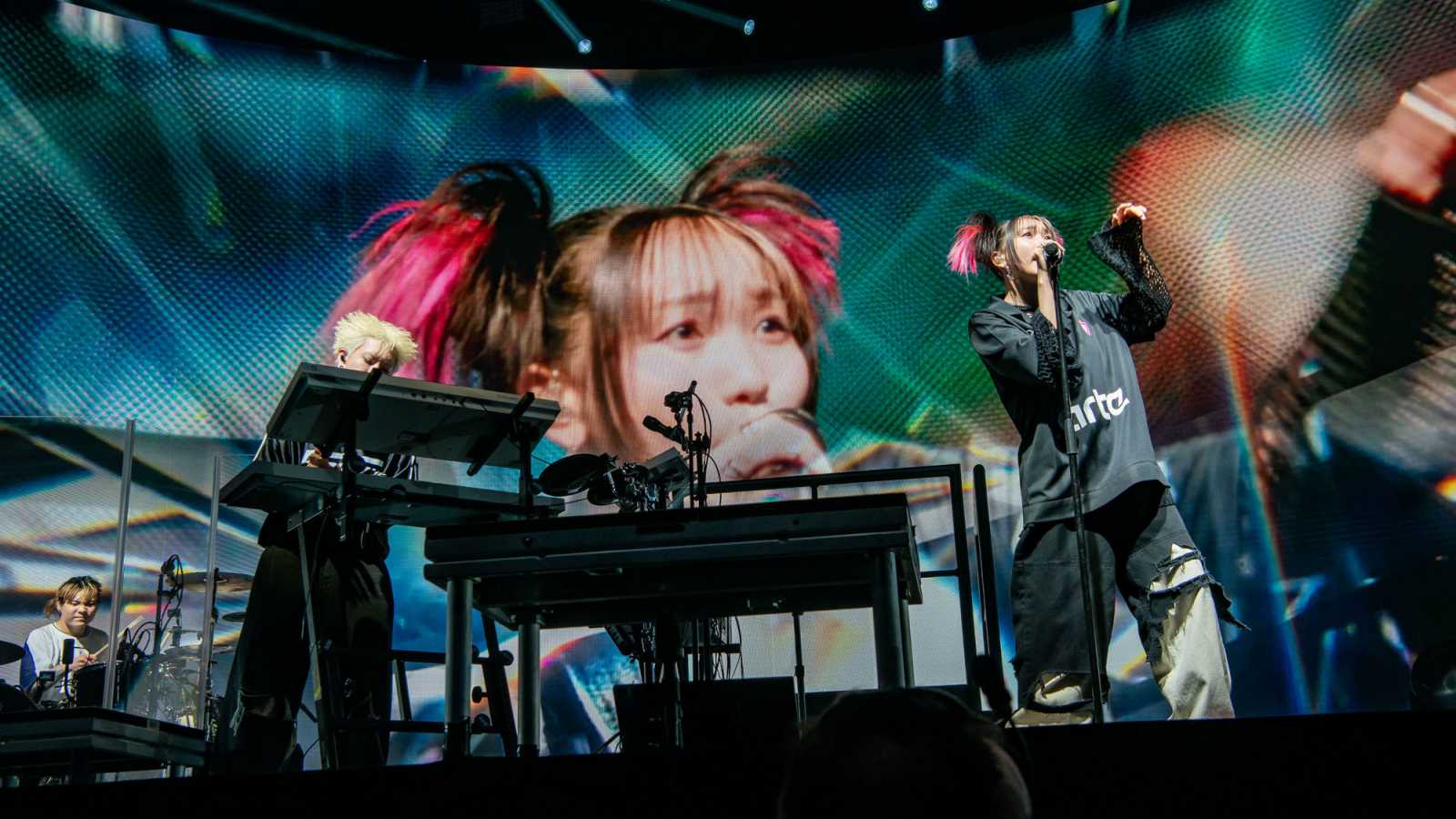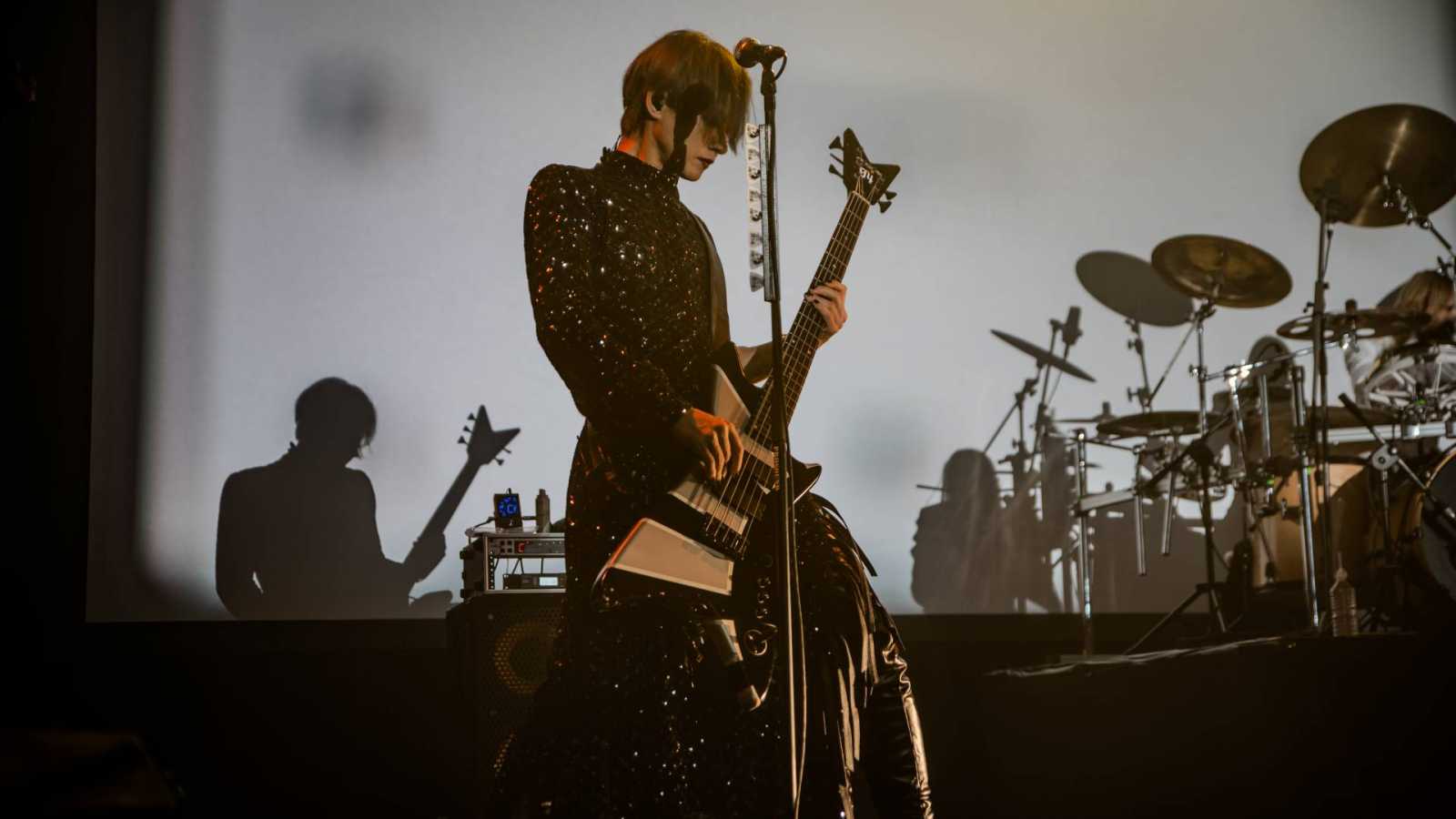NoGoD's anticipated first album is a journey through a wildly varied world of dreams.
Mugenkyo, the title of NoGoD's awaited first album, roughly translates to 'dream teachings,' a rather grand title for any group. For NoGoD, this seems to mean taking listeners on a journey through a wild and varied dreamscape.
The dulcet tones of Maboroshi offer a short, gentle introduction to the album. Kyrie's soft guitar strumming holds the melody as the other musicians seamlessly weave into the music, with Dancho's soaring vocals building to a rousing climax and then sliding smoothly into Saiko no Sekai. The appearance given is of two radically different halves of one vibrant song. Saiko no Sekai, the recent single, is a powerful track bearing the hallmarks of the NoGoD style with neat twin guitars from Shinno and Kyrie, the former providing the firm chords while the latter has the chance to play with decorative riffs. The two provide a great introduction to the album.
Sadly, Shirosagi lets it down briefly with a competent if uninspired melody that is too ordinary for NoGoD; that the song seems to rely overly on Dancho's falsetto for interest is not to its credit. This blip is only temporary though, as some interesting pace changes and a wicked bassline from Karin drive a thoroughly funky sound through Shinjitsu no hana. Together with the powerful guitar chords throughout and a breakdown between Karin's bass and Shinno's guitar at the mid way point, Shinjitsu no hana is one of the more interesting songs on the album.
This quality continues with the first ballad, Rinne Tenshou. There is something of an 'epic' feel to this piece of music. Despite Dancho's vocals seeming a little stretched at one or two points, the finesse inherent in the five musicians is clear. Although Karin feels absent, this is the guitarists' song as Kyrie lets loose with complex riffs that give his guitar a vocal quality. It is a very mature sound from the quintet.
Atarimae, meanwhile, appears to be channeling L'Arc~en~Ciel or Pierrot with its rippling guitar melody that loiters beneath layers of pop. It is a strikingly new sound from NoGoD, with a lighter pop attitude than previously heard. While the light sound suits Dancho's vocals, it is also a little bland.
Aozora, in total contrast, could not be called bland as NoGoD takes the plunge with a six-minute instrumental track mid album that marks the high point of Mugenkyo. It appears that the four band members overdosed on Lynyrd Skynyrd in producing this incredible 1970s styled piece of music. Karin's bass is stunning with a slapped bass solo early into the instrumental and remains a powerful underlying force throughout, while Kyrie and Shinno go wild with detailed riffing and soaring guitar licks. Listening to it creates images of a great flight into the stratosphere. After Aozora it is hard to imagine where NoGoD will head next; it makes such a radical, bold imprint on the album with its professional display of musical finesse that it leaves the other tracks behind it in its wake.
With Tsumi batsu Egoist however, NoGoD suddenly plummets into the depths of pure heaviness with astonishing low vocals from Dancho and a speed metal drumbeat from K. It is all a little too much like Gilgamesh though. Thankfully, a sudden raise in pitch and return of a familiar falsetto ensures we are back in comfortable territory. NoGoD handles heavy well, but it adds more to a growing 'allsorts' feeling. This feeling becomes stronger in the following, Shukufuku no Uta. That rocking 70s influence that permeates the guitars on a few songs on the album wraps around a typically NoGoD rhythm, although the chorus of 'woh oh' sounds scarily like that in Wake Up by The Arcade Fire. It is a grand and complex song with a real sense of finality about it.
Given that, it is strange to find Yume tucked away at the end of the album. While the opening is boring and heavy, Yume soon reveals an interesting side: Dancho's vocals have a sinister edge around which sinuous Eastern sounding guitars wind. This is a complete contrast to the soaring chorus. By the time the instrumental kicks in with a progressive rock styled breakdown, Yume has drawn you into its dreamlike clutches, providing an apt fitting to end Mugenkyo.
Mugenkyo is a real dreamscape of sounds; from feelings of flying to a deep nightmare, it is a roller coaster of music. It could be criticized for lack its of consistency or over experimentation, but in an album title that roughly translates to 'dream doctrine' this could be forgiven. As NoGoD takes us on this journey through a strange world of darkness and light, some ideas work incredibly (Aozora) while others (Atarimae and Shirosagi) fall a little flat. Mugenkyo is not the perfect album that NoGoD fans may have been anticipating, but it is pretty darn good.
(This review refers to the Limited Edition. The Normal Edition includes an extra track, which has not been reviewed here)



